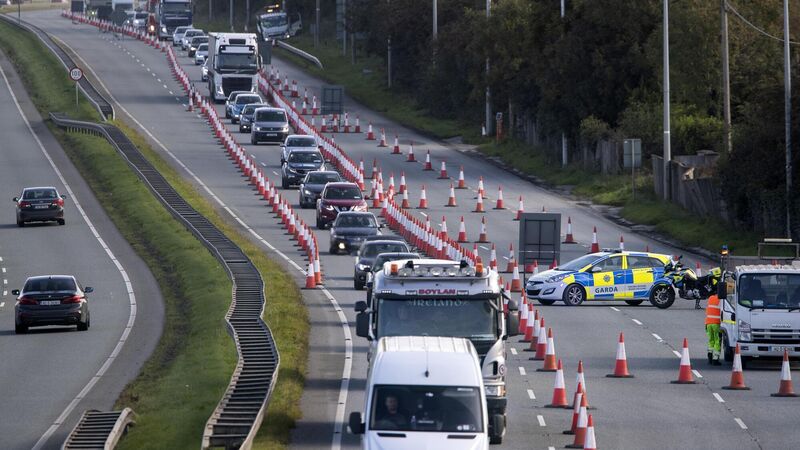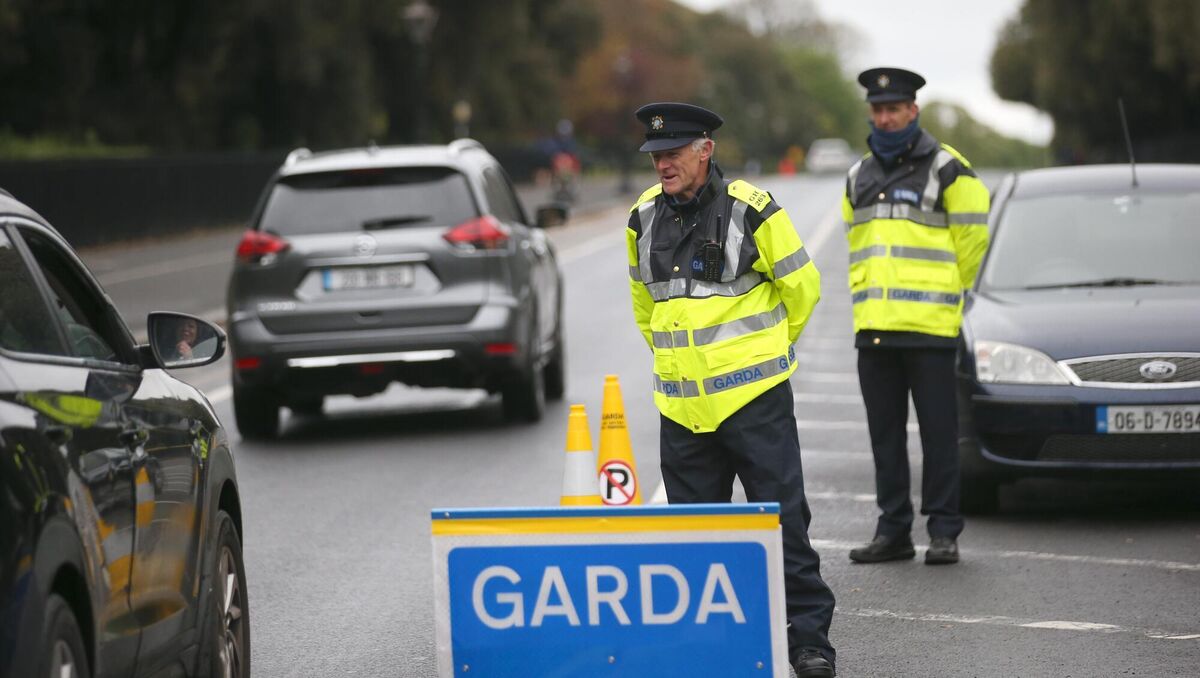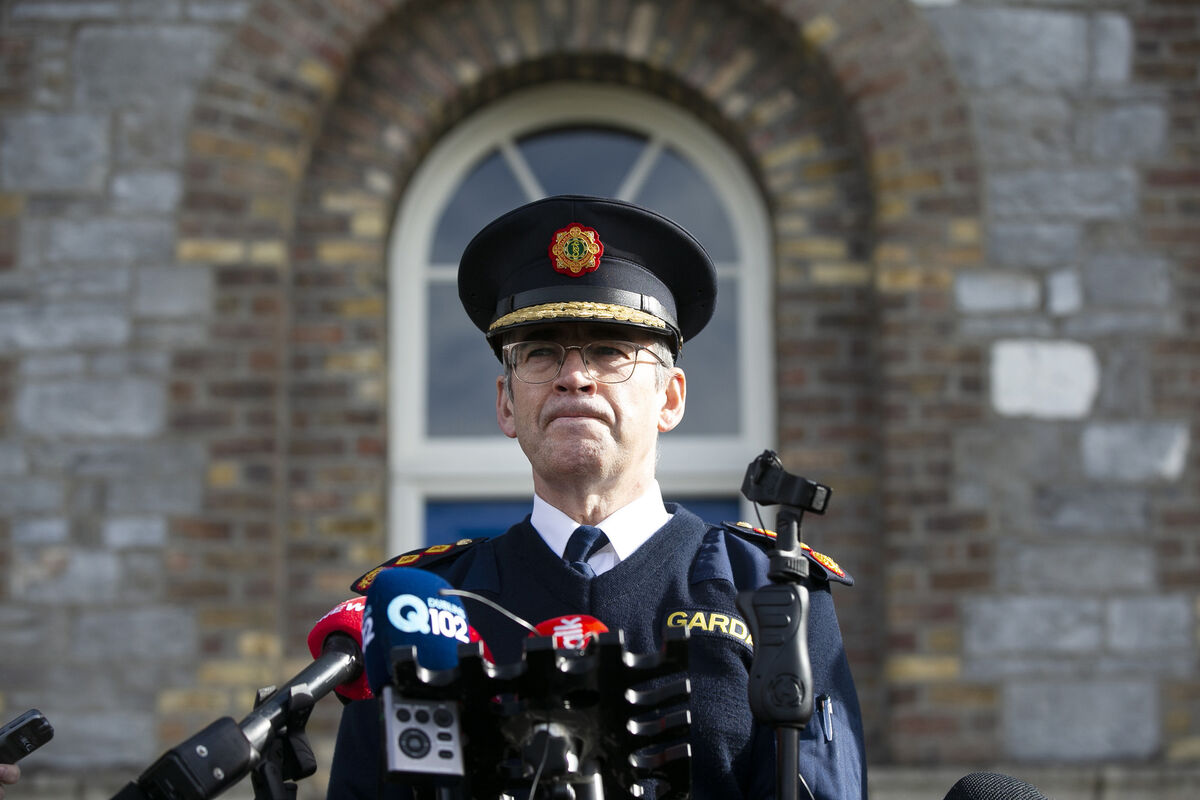Taoiseach suggests fines may be on cards for breaking Covid-19 travel restrictions

Long queues as Gardaí conduct a Covid-19 Checkpoint on the N7 at Blackchurch this morning, in the wake of the entire country entering stage 3 restrictions. Picture: Colin Keegan/Collins Dublin
The Government is considering the introduction of fines to deter people from breaking Covid-19 travel restrictions, the Taoiseach has confirmed.
Micheál Martin said the Oversight Committee met on Wednesday morning "with a view to stronger enforcement around level three restrictions".
He told the Dáil: "We're looking at the whole area of fines in terms of traffic and so on like that."
In came as traffic jams were reported across the country from this morning as 132 garda checkpoints are set up on major routes to prevent people from leaving their counties under new Level 3 regulations.
On the N7 Junction 5 Outbound, Gardaí are asking drivers of any Heavy Goods Vehicles approaching the checkpoint to use lane 3 if possible and safe to do so in order to facilitate the movement of commercial traffic through the checkpoint. pic.twitter.com/cwHF53TpcC
— An Garda Síochána (@GardaTraffic) October 7, 2020
AA Roadwatch reported that a queue of 8km in length had built up on the N7 westbound from J2 Kingswood to J5 Athgoe.
Traffic is also said to be moving "Very Slow" on the M11 / M50 near Bray, where garda checkpoints have been set up.
An Garda Síochána has re-commenced Operation Fanacht as a nationwide policing operation focused on supporting public compliance with public health measures.
— An Garda Síochána (@GardaTraffic) October 7, 2020
People are being encouraged not to travel out of their county unless for essential reasons.#HoldFirm #WashYourHands pic.twitter.com/fL5yJ8pa78
Garda Commissioner Drew Harris warned people that “travel will feel very different from today”.

He acknowledged that gardaí will have no penal power to stop people from moving from county to county, but said that to ignore a checkpoint would be “a foolish choice”.
At a press briefing at Garda HQ in Dublin, the Commissioner said that from midnight yesterday for three weeks the force will be placing 132 fixed checkpoints daily on “arterial routes”, including motorways which will reduce to one lane, across the country.
“That is to ensure that people stay within their county and only travel to work if it is absolutely essential to do so,” Mr Harris said.
He denied that the lack of enforcement regulations within law will prevent people from listening to gardaí, saying that even when the gardaí had such power earlier in the initial lockdown it was only used “342 times”.
The new checkpoints would follow the tried and tested protocol of the “three Es” - engage, educate, encourage - he said.
Asked to acknowledge that people can ignore the three Es and continue on their way, Harris said “they can, but I would say to them that is a foolish choice”.
Last week the gardaí put 2,000 checkpoints in place in Donegal and Dublin alone, with that figure now set to “expand significantly”, the Commissioner said.

Regarding the ongoing issue of house parties, Harris said that “we don’t ignore them”.
“I think you’d agree that the ambiance of having guards outside your house party somewhat dampens the mood.”
Antoinette Cunnigham of the Association of Garda Sergeants and Inspectors (AGSI) questioned how effective increased checkpoints and enforcing Level 3 restrictions would actually be at reducing Covid numbers.
"Donegal and Dublin have been involved in a lockdown over the past few weeks and we haven’t seen a reduction in Covid numbers in those areas. So, it remains to be seen whether this will work or not.
“It remains a concern of AGSI that we have absolutely no consultation with Government whatsoever with regard to any enforcement or proposed legislation at this time."
She called on the Government to introduce a five stage enforcement plan to run alongside the five stage Living with Covid plan so that people would know that "as the situation got more serious, the enforcement measures would increase correspondingly".
GRA President Jim Mulligan said that policing the pandemic "has been based on a measured and professional approach by gardaí working in a cooperative spirit" with the public and businesses.
“We expect that will continue but it is crucial that the message from government around the new restrictions is clear and unambiguous for the public and the business community," he said.





